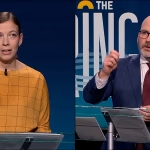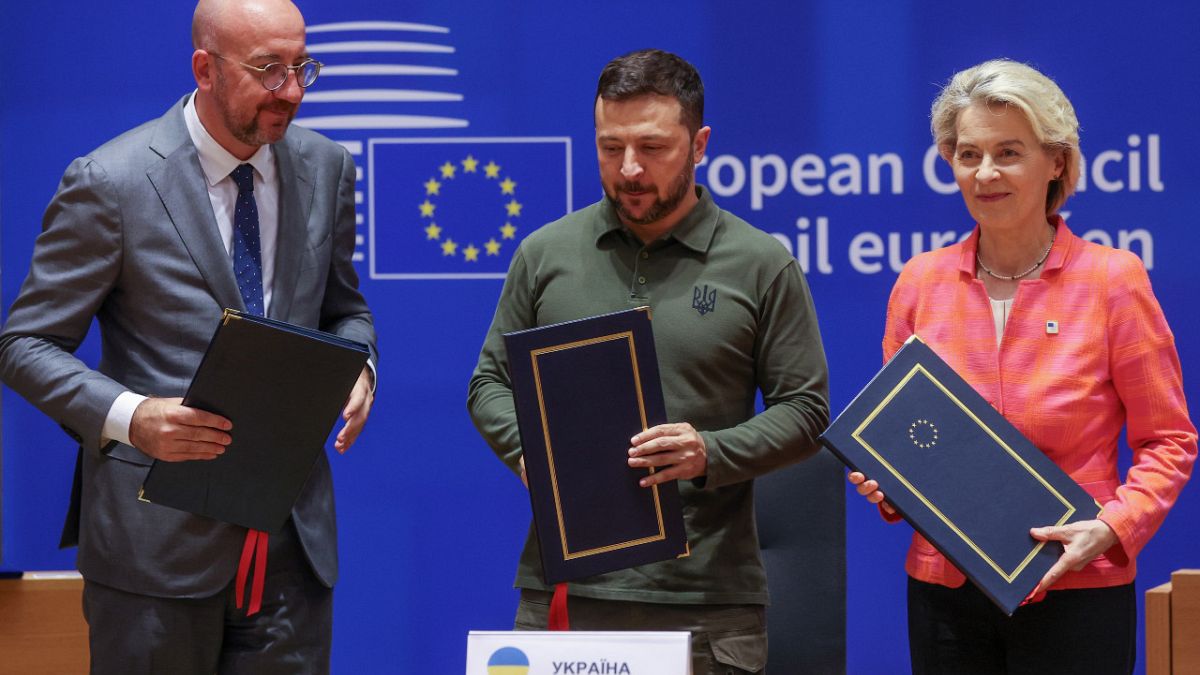Ukraine’s President Volodymyr Zelenskyy recently visited Brussels for a summit with EU leaders, following the country’s first membership talks with the bloc. During the summit, the European Union signed a security agreement with Ukraine, promising ongoing military, financial, diplomatic, and humanitarian aid to the war-torn country. Zelenskyy urged other European nations to join in supporting Ukraine’s security efforts, emphasizing the need for air defense systems on the battlefield.
The agreement outlines commitments from the EU to provide long-term support for Ukraine’s security and defense, including training for security forces, cooperation with defense industries, and measures to counter hybrid and cyber threats. While funding is currently designated through 2024 via the Ukraine Assistance Fund, future commitments will be based on Ukrainian needs and political guidance. The EU also plans to support Ukraine’s reform process, integration into the single market, and impose sanctions on Russia if necessary.
Zelenskyy expressed the urgent need for military assistance, particularly air defense systems, to protect Ukrainian cities from Russian attacks. The EU has faced challenges in meeting these demands, such as delays in providing ammunition and other equipment. Despite these obstacles, Zelenskyy appreciated the support received so far and emphasized the importance of stopping Russian aggression through modern air defense capabilities. The EU recently approved new sanctions against Russia and agreed to use frozen Russian assets to support Ukraine.
Following the summit, Zelenskyy met with NATO Secretary General Jens Stoltenberg to discuss further security cooperation. Zelenskyy highlighted the significance of the EU’s first accession negotiation talks and expressed Ukraine’s readiness to progress through the necessary steps. The signing of bilateral security agreements with Lithuania and Estonia, in addition to previous agreements with France and Germany, demonstrates Ukraine’s commitment to enhancing security cooperation with EU member states.
Overall, the EU’s security agreement with Ukraine signifies a long-term commitment to supporting the country’s defense capabilities and reform process. As Ukraine continues to face threats from Russia and seeks to strengthen its military capabilities, ongoing support from the EU and NATO will be crucial in safeguarding the country’s sovereignty and territorial integrity. Zelenskyy’s visit to Brussels has further solidified the partnership between Ukraine and the EU, paving the way for continued collaboration in addressing security challenges in the region.









